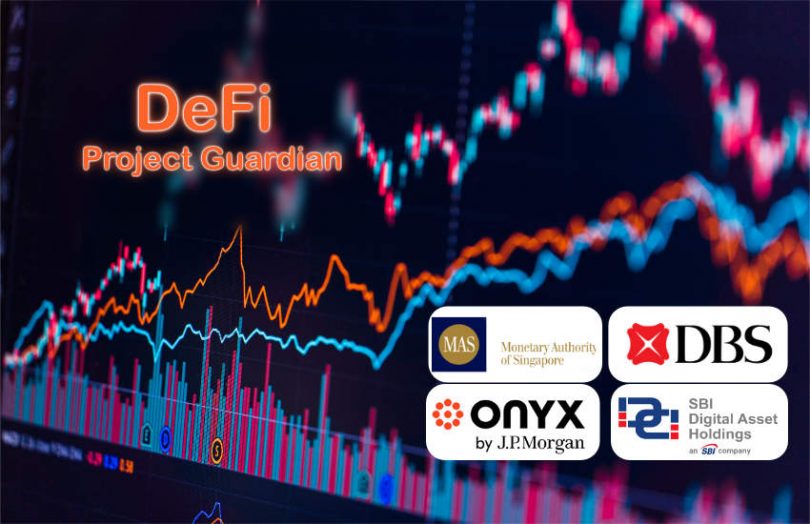Today the Monetary Authority of Singapore (MAS) announced the successful first pilot of Project Guardian, which explores the potential of DeFi for financial institutions. JP Morgan Onyx, DBS and SBI Digital Asset executed trials for foreign exchange transactions and government bond trades using modified public lending protocol Aave and the decentralized exchange (DEX) Uniswap on the Polygon blockchain.
One test was for foreign exchange, and the other was for trading government bonds. Aave launched support for permissioned DeFi lending pools, Aave Arc, earlier this year.
The challenge for institutional DeFi usage is how to avoid creating walled gardens and yet add a layer of safeguards for compliance. One solution is the introduction of trust anchors, with certain financial institutions issuing verifiable credentials to traders so that the counterparties are known.
Additionally, the use of standards enables interoperability. Here the widely used Ethereum ERC-20 token standard was used as well as W3C standards for verifiable credentials. Future trials might use ERC-1155, the multi-token standard.
“The ability to programme smart contracts will reshape how execution can be achieved in a highly trusted manner, especially if it takes place in a permissioned market where all anonymous wallets are verified by trust anchors performing ‘Know Your Customer’ processes and trading is allowed to take place within that pool,” said Han Kwee Juan, Group Head of Strategy and Planning, DBS. “This provides a springboard for the industry to further opportunities in the trading world.”
In one of the tests, JP Morgan Onyx tokenized SGD deposits and SBI Digital Assets tokenized JPY assets. These tokenized assets used the borrowing and lending protocol as well as the DEX for forex transactions. A second trial involved DBS and SBI Digital Assets, where they traded government bonds with DBS tokenizing SGD currency and Singapore bonds. SBI did the same for Japanese bonds and JPY currency.
The institutional DeFi road to adoption
DBS’s Han Kwee Juan observed, “A highly liquid market attracts more investors and achieves efficiency gains by bypassing intermediaries.”
Despite the positive experience, the participants identified a raft of issues that would need to be addressed for institutional adoption. The biggest one is legal clarity, and that’s a basket of issues rather than just one. Some of the challenges were addressed through bilateral agreements and a rulebook could be used with a larger number of participants.
The group recognizes the benefits of automation with smart contracts and the efficiency gains. But in these trials, the “integration” with legacy systems involved manual postings. So for efficiencies to be realized, there’s a need for interoperability with legacy systems or adapting them. For example, one of the blockchain benefits is using a shared ledger to remove the need for reconciliation, so legacy systems would have to refer to that ledger.
Other issues to be addressed include adoption incentives, guardrails such as smart contract audits and standards, and business models.
Additionally, today MAS announced the addition of two new pilots and its involvement in a cross border CBDC project with the central banks of France and Switzerland that will also use DeFi.
“This is a big step towards enabling more efficient and integrated global financial networks,” Mr Sopnendu Mohanty, Chief FinTech Officer, MAS. “We look forward to working with more institutions to advance global learning on policies, standards, and best practices for digital asset regulation and responsible innovation.”






